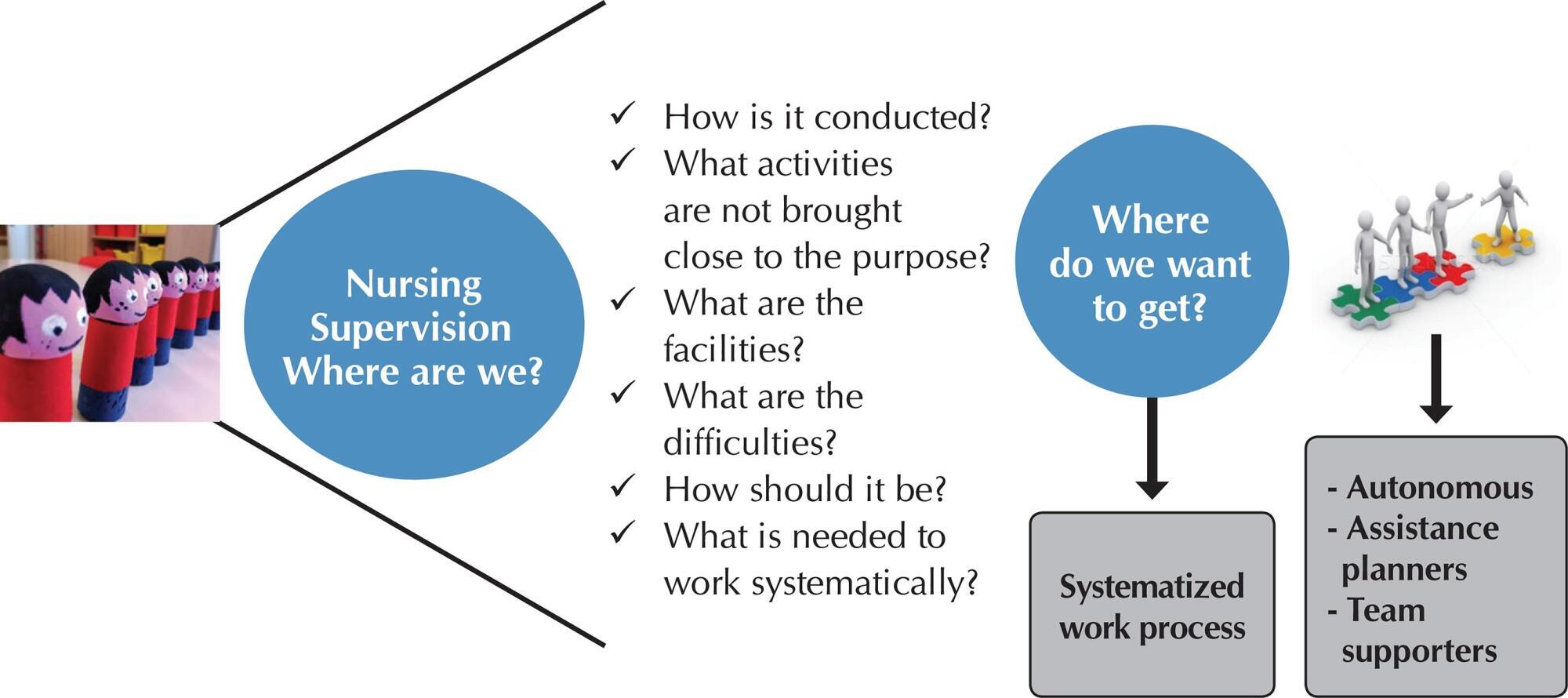-
ORIGINAL ARTICLE
Nurses’ stress and resilience before and after evaluation for hospital accreditation
Revista Brasileira de Enfermagem. 2022;75(3):e20201341
11-29-2022
Resumo
ORIGINAL ARTICLENurses’ stress and resilience before and after evaluation for hospital accreditation
Revista Brasileira de Enfermagem. 2022;75(3):e20201341
11-29-2022DOI 10.1590/0034-7167-2020-1341
Visualizações0ABSTRACT
Objectives:
to analyze and compare levels of stress and resilience in nurses before and after the assessment for maintenance of the Hospital Accreditation Certification.
Methods:
quantitative, observational, and longitudinal research, with 53 nurses from a philanthropic hospital, in the Rio Grande do Sul. Data collected in two stages, March, and July 2019, before the assessment visit and 60 days after, using the Bianchi Stress Scale and Resilience Scale. Descriptive and analytical statistics were employed.
Results:
the majority of participants showed an average stress level before and after the evaluation. The highest stress scores were related to Domains E (coordination of unit activities) and C (activities related to personnel administration). In both moments of the study, the participants had medium and high resilience.
Conclusions:
managing people, processes, and assistance are stressful activities in the Accreditation process and increase the nurses’ stress levels.
Palavras-chave: Hospital AccreditationHospital Nursing ServiceNurse AdministratorsProfessional BurnoutPsychological ResilienceVer mais -
EXPERIENCE REPORT
Workshops as a democratic proposal in order to change the supervision work in nursing
Revista Brasileira de Enfermagem. 2018;71(4):2050-2054
01-01-2018
Resumo
EXPERIENCE REPORTWorkshops as a democratic proposal in order to change the supervision work in nursing
Revista Brasileira de Enfermagem. 2018;71(4):2050-2054
01-01-2018DOI 10.1590/0034-7167-2017-0286
Visualizações0ABSTRACT
Objective:
to report the experience of developing workshops as an intervention strategy in an action research, aiming to review the work of supervision in hospital nursing.
Method:
to report of the experience of planning, developing and evaluating workshops with a psychosocial approach. Three workshops were held, in a reserved place, with the participation of 21 supervisors of a public university hospital. Each workshop was organized with heating, day work, closure with syntheses and consensus.
Results:
the work provided the exchange of experiences, reflections and proposals for difficulties identified in the work process that distract supervisors from the management of assistance such as communication failure, reworking and lack of definition of assignments in the team.
Conclusion:
the dynamics of the workshops favored supervisors to propose solutions to the difficulties of their practice in a more democratic and participative way, through dialogical interactions, sharing of the feelings pertinent to the work context and establishing consensus for the completion of the task.
Palavras-chave: EducationHospital AdministrationHospital Nursing ServiceNursing SupervisionOrganization and AdministrationVer mais
-
PESQUISA
Moments for hand hygiene in Material and Sterilization Center
Revista Brasileira de Enfermagem. 2016;69(3):546-551
01-01-2016
Resumo
PESQUISAMoments for hand hygiene in Material and Sterilization Center
Revista Brasileira de Enfermagem. 2016;69(3):546-551
01-01-2016DOI 10.1590/0034-7167.2016690318i
Visualizações0Ver maisABSTRACT
Objective:
to characterize the moments when there is a need for hand hygiene (HH) by employees who work in Material and Sterilization Center (MSC).
Method:
we conducted a descriptive cross-sectional study in the MSC of a large hospital, from July to November 2012, in Goiânia, state of Goiás, Brazil. Data obtained through observation of workers, following a previously evaluated and tested checklist.
Results:
to the dirty area, standardized moments of HH were enough. In the clean area, "Extra moments with indication" for HH, resulting from the work process, such as: after disinfecting benches, after verification and inventory of consigned products, before assembling boxes/trays, before loading and unloading the autoclave, before handling and distributing health care products, among others, were necessary.
Conclusion:
the moments of HH in the dirty area coincide with indications of the clinical practice; and, in the clean area, characteristic moments of the work process were captured.



